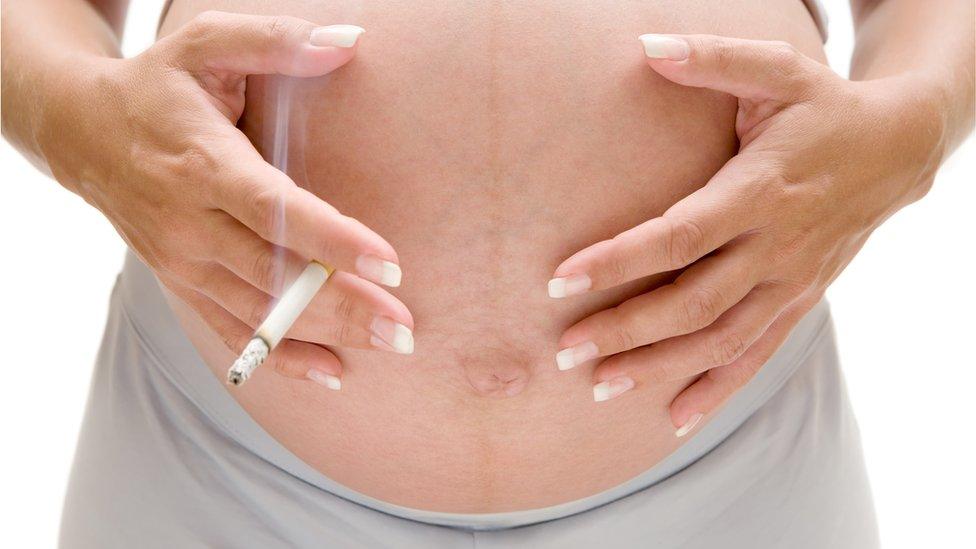Girls inherit smoking miscarriage risk
- Published

Women exposed to cigarette smoke while in their mothers' wombs are more likely to experience miscarriage as adults, according to a study.
University of Aberdeen researchers found the link remained even after taking account of the smoking habits of the women themselves who miscarried.
But no link was found between exposure to cigarette smoke in the womb and a decrease in fertility.
The study, external examines data from 12,321 women born before 31 December 1972.
The university said an analysis of the data also showed that women exposed to cigarette smoke in the womb were more likely to have a pregnancy than those whose mothers did not smoke.
Women exposed to cigarette smoke in the womb were also likely to have a pregnancy earlier than those not exposed.
Future fertility
Dr Sohinee Bhattacharya, a pregnancy and childbirth expert from the University of Aberdeen, said previous research had suggested there may be a "small decrease" in the fertility of women whose mothers smoked in pregnancy.
"This study used a databank in Aberdeen to look at the birth records of more than 12,000 women and followed them through for 40 years to see whether being born to a smoker had any impact on women's future fertility," she said.
"The study did not find a link between mothers' smoking and a decrease in fertility in their daughters.
"Women whose mothers smoked were more likely to have a pregnancy, but this study suggests that this could simply be linked to the fact that they were also more likely to get pregnant at an earlier age and could be related to socioeconomic status.
"Worryingly the study did find a significant increase in the chances of having a miscarriage among the women whose mothers had smoked when pregnant with them. "
The lead author of the paper, Sam Tweed, completed the work as part of his undergraduate degree and graduated from the University of Aberdeen's Medical School in June.
The research was published in the Human Reproduction Open journal.